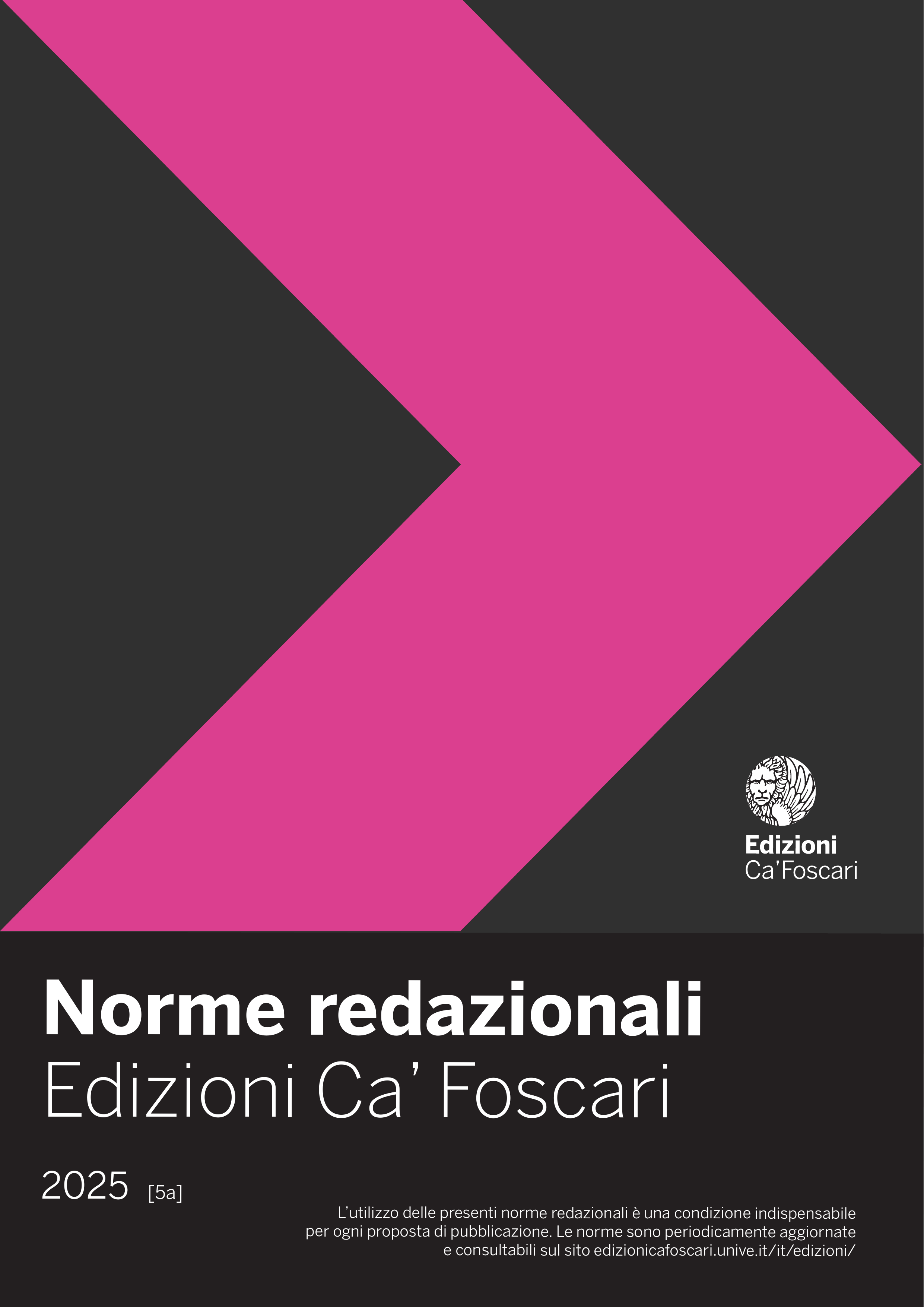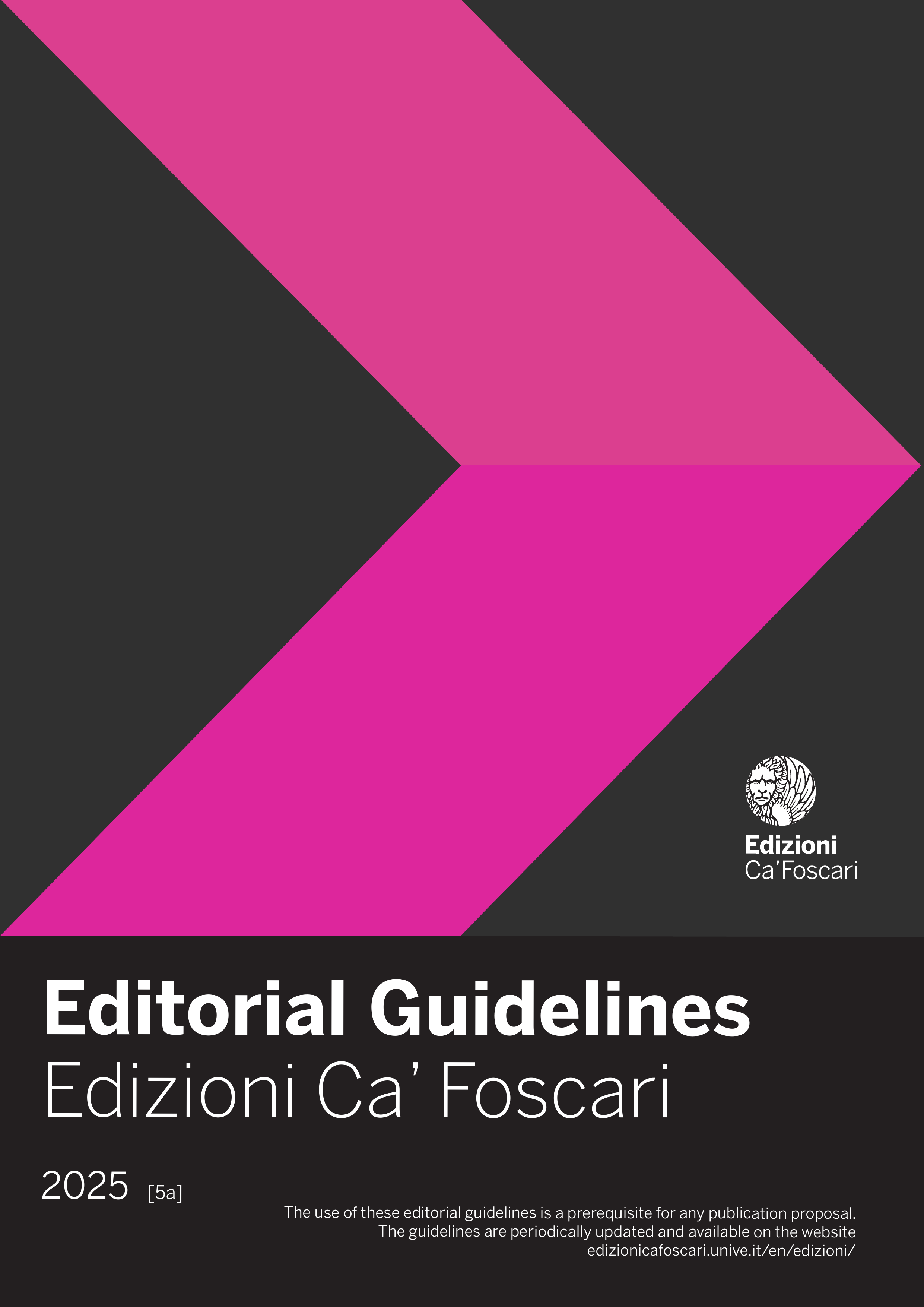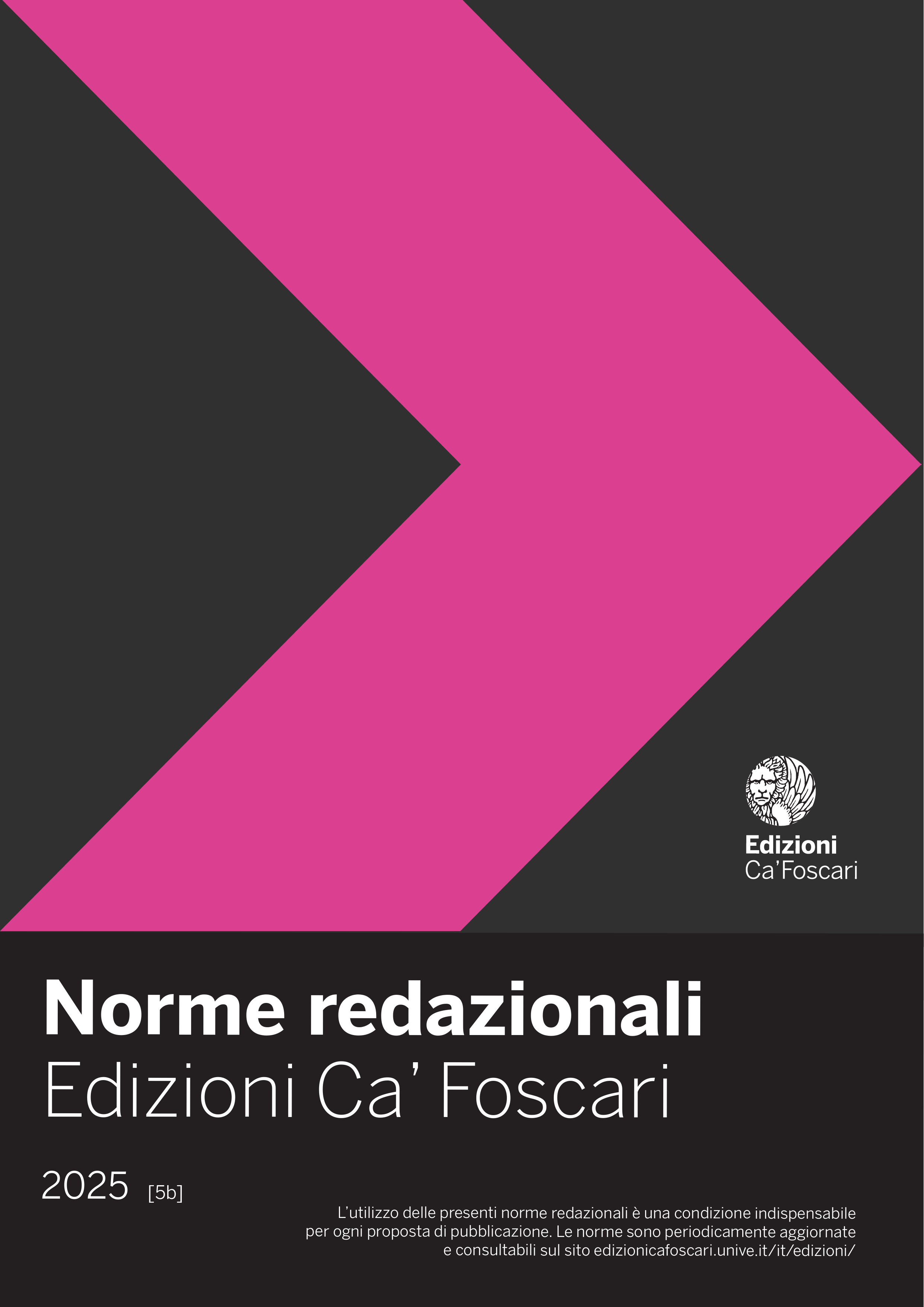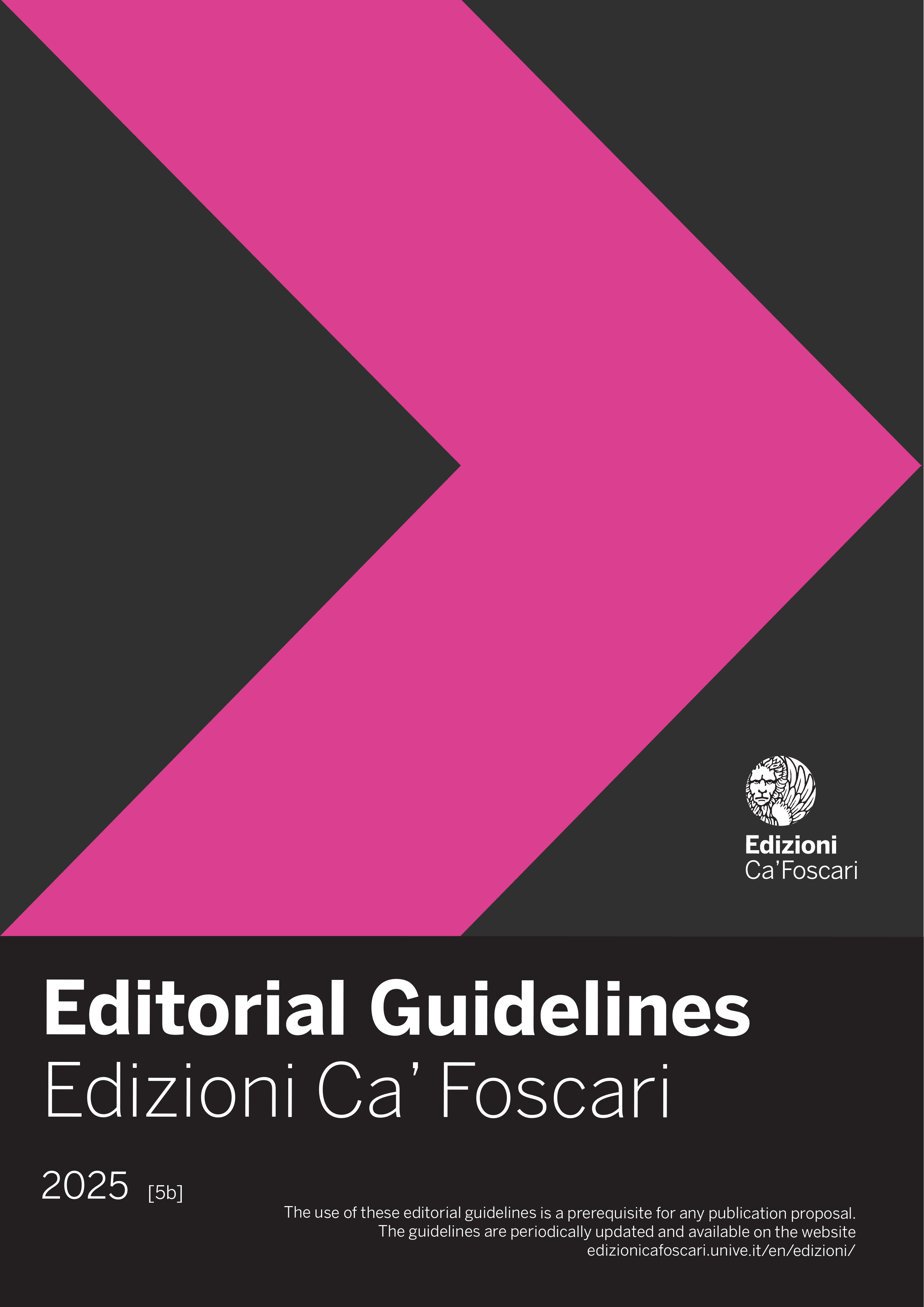Key Information
The correct use of the Editorial Guidelines document does not depend on its integral reading and assimilation. It must be used as an analytical repertoire of all the elements that make up the text and the forms that each one will have to assume. You will find descriptions and examples on the use of punctuation, on the formatting of titles, bibliographic references, sources (bibliographic or archival, etc.), footnotes, captions, etc.
Variations or specific additions to the general guidelines are reported in the Info area of the journals.
Each document shall include:
- an abstract in English (whose length has to be no more than 650 characters spaces included);
- no less than five keywords in English;
- a bibliography.
- DOI: to ensure compliance with the ‘Reference Linking’ practice required by Crossref, the bibliography must contain the DOIs of the cited sources (in the form https://doi.org/10.xxxx/xxxxx) that the Author can find on the https page: https://search.crossref.org/search/references.
For more information, please contact the editorial staff of ECF at the address ecf@unive.it.
Download
You can consult and download the editorial guidelines, both in their full and abridged versions, in Italian and English.
Note: Some series have specific guidelines that supplement or modify the general ones; these can be found on the respective homepage under the "Editorial Guidelines" section.
Non-textual contents
Please note that the submission platform accepts files in .docx format only. Compressed files (.zip), folders, or external attachments cannot be uploaded.
If images are an integral and essential part of the scientific evaluation of the submission, they must be included directly within the .docx file, accompanied by:
complete captions, including description, source, and copyright holder;
approximate placement within the body of the text.
This procedure ensures proper handling of materials during the peer review phase, guaranteeing consistency in the evaluation and editorial process.
Any high-resolution files or additional visual materials may be provided at a later stage, only if the submission is accepted for publication.
Starting from June 28, 2025, in accordance with the new European legislation on digital accessibility, the following elements will be mandatory to ensure content accessibility for users relying on assistive technologies:
- Alternative text (alt-text) for each image, separate from the caption. This description must be distinct from the caption, as it serves a different purpose: to make visual content accessible to those using assistive technologies;
- Long description (long-desc) for each table, separate from the caption;
- Contextual text for URLs for example, instead of displaying only a link, provide contextual text explaining its purpose, such as: “See the full report at www.example.com/report”. This helps ensure both accessibility and clarity.
In the case of graphic elements such as:
- images: high-resolution files are required for the print edition (min. 300 dpi at a base width of 14 cm). Images must always be accompanied by a caption indicating the subject, author, year, and source;
- charts: must be standardized using ECF fonts, or produced using methods specified by the editorial team on a case-by-case basis.



